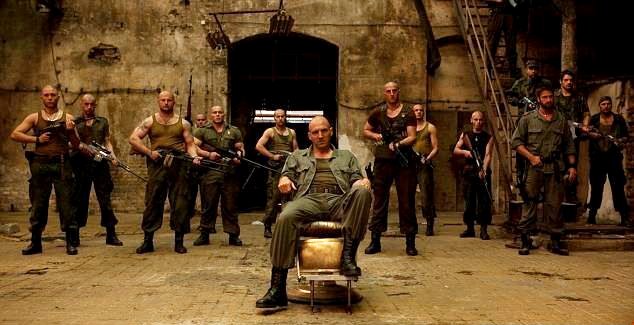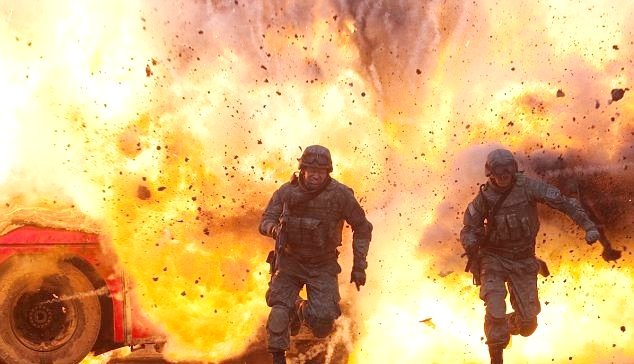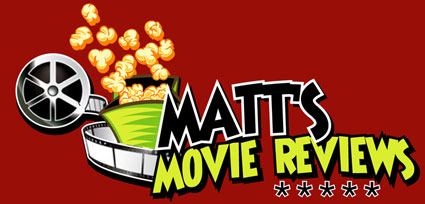By all standards Coriolanus is a hard sell of a film. Film adaptations of Williams Shakespeare’s works have been hit or miss. Even less successful are directorial debuts by actors. Yet Coriolanus bucks both trends to make for a fresh and vital work of a 400 year old text many outside of the Bard fan base have never heard of.
It is the passion of star/director Ralph Fiennes and screenwriter John Logan that makes Coriolanus work as a compelling film relevant to our times. Fiennes plays Martius Coriolanus, a war hero and general of Rome who is ousted from the city after a stint in politics turns ugly. Swearing revenge Coriolanus teams up with his sworn enemy Tullus Aufidius (Gerard Butler) to bring Rome to its knees.
For Fiennes, the idea of adapting Coriolanus to the big screen was planted while he was studying his craft at the Royal Academy of Dramatic Art.
“I first came across it probably when I was reading Shakespeare plays as a drama student, and shortly after I was able to see Ian MacKellan play it on stage at the National Theatre here in about the 1980s and it moved me” says Fiennes. “It struck a chord and it moved me very much, and I suppose kind of somewhere in the back of my head I marked it as a role that one day I’ll like to have a go at.”
“I got to play it in 2000 in London in an intimate production that I liked, but I felt I had unfinished business with the part. There were nuances and maybe qualities and things in the role which I had not fully achieved or explored, and also alongside that feeling there was a growing belief that it could be a valid film.”
Sharing that belief was John Logan, one of Hollywood’s more prolific and lauded screenwriters who received Oscar nominations for his work on Gladiator and The Aviator.
“I’m a writer today because of Shakespeare and always felt that of all the plays the one I wanted to adapt was Coriolanus, but I never thought anyone would share that thought because it’s not a particularly beloved Shakespeare play, even among Shakespeare fans it’s a contrary kind of play” says Logan.
“Then my agent called me and said ‘Guess what? Guess who also loves Coriolanus as a movie? Ralph Fiennes!’ So we met for the first time to talk about it and within five minutes I realised we were seeing the same movie and we were gonna do it.”
While Fiennes was determined to see Coriolanus on the big screen, the idea that he would direct the film was one that grew as the project gained traction.
“I didn’t think consciously that this would be my directorial debut” says Fiennes. “In fact I was approached to direct something else and that didn’t work. But the process of thinking of directing a film gave me a degree of confidence to start thinking about Coriolanus, even though I can see people looking at me with a slightly glazed expression as if, ‘Oh, yes. Another actor with fantasies about a Shakespeare film.’ ”
No doubt some would have met the news of Fiennes directing a Shakespeare adaptation with raised eyebrows, yet Logan was not one of them. Having worked alongside such filmmaking luminaries as Martin Scorsese, Ridley Scott and Oliver Stone, Logan knows how to spot a real director from a vain interloper.
“Once I sat down and talked to him I realised that this in no way was an actor’s vanity project, that this was a serious filmmaker talking” says Logan. “He was looking at the movie as a complete whole as a filmmaker would. You know, just the way it was sitting down with Sam Mendes or Martin Scorsese. It’s that same universal eye on the whole that Ralph had about Coriolanus.”
 |
"The process of thinking of directing a film gave me a degree of confidence to start thinking about Coriolanus, even though I can see people looking at me with a slightly glazed expression as if, ‘Oh, yes. Another actor with fantasies about a Shakespeare film.’ ” - Ralph Fiennes |
No matter the talent and determination involved, the task of adapting any Shakespeare play – let alone one as complex as Coriolanus – is a daunting one. Yet it was a challenge which Fiennes and Logan took to with a healthy amount of respect for Shakespeare’s works and an aim to make the best film out of the material.
“It’s daunting because you have to sort of get into the text and fish out and weed out stuff you need and the stuff you don’t need, and you have to think through precisely where your setting things and how they lead and how they transition” says Fiennes. “And that is a daunting task, but I think what is great is that yes it is but when you have two people, and I’m thinking of John Logan and myself, who are both buzzing on what it could be then ideas tend to come quite quickly and they get rejected or they get embraced.”
Essential for Logan was a solid dose of intimidation in taking the Bards words and making them his own.
“You know, because I have such respect for Shakespeare and I became a writer because of Shakespeare, I had some trepidation” says Logan. “Here is what I finally thought: these plays have been performed for 400 years and they will be performed 400 years from now, and when all the celluloid in the world decays and turns into chemicals people will still be acting Coriolanus, and there was nothing I could do that was going to in any way impair Shakespeare’s great masterwork.”
“The Shakespearean film adaptations I like most are the most bold and the most muscular, so I felt the play could sustain anything we could throw at it.”
With those fighting words Fiennes and Logan set out to update Coriolanus into modern times, keeping the Bards “iambic pentameter” style of dialogue in tact yet updating the backdrop. Ancient Rome was transformed into anywhere Europe (war torn Serbia was used as location), senators in togas were now slimy politicians in suits and 24 hour news channels covered the wars both in the streets and in the senate. In short it was an ingenious move with brought a relevancy to the play.
“There was never any interest doing it in anything but now… there’s something in Shakespeare’s play that struck me as very modern, and Ralph as well” says Logan. “That’s why I thought of all the plays it was the one I wanted to adapt, because there is something so completely contemporary feeling about both the world of the play specifically, and even more importantly about the central character.”
And what a central character Martius Coriolanus is. Part man of virtue not willing to compromise himself in the game of politics, and part hothead with too much pride, he is a man willing to die for the people even though he despises them.
It is a part which Fiennes inhabited with his fiery brand of authority, making a chilling yet appealing character come to life.
“He’s a person of extreme, sort of almost gross integrity. Military integrity, if you like” says Fiennes. “He doesn’t want to involve himself in any negotiations, but there’s no questions he has a sort of intransigent pride and he has contempt for the people who are protesting. He has a contempt for the people on the street and that is deliberate on Shakespeare’s part. I’m meant to feel that.”
“He’s an extreme figure and you’re meant to see an ambivalence about him. But I think in the end he’s a rather stunted individual. He was almost psychopathically raised but the great humanising moment is his breakdown at his mother’s feet. She wears him down and he is what Aufidius calls him. He is a boy, a boy in tears, and when I first saw that on stage it moved me.”
 |
"Look at the events in Egypt, and the Middle East and everything that has unfolded as we were making the movie and since we made the movie. There is something so universal about what Shakespeare wrote that is seems absolutely on the cutting edge of the modern world.” - John Logan |
Equally moving is the clear relevance of what is on screen compared to the unrest and upheaval seen around the world, with Fiennes and Logan never short of inspiration with the Arab Spring and violence in Syria playing out in front of their eyes.
“I found it shocking that it was still so relevant” says Logan. “I was working on it during the Iraq war and you know, I turn on the TV or open a newspaper and see images that was so directly related to the adventurism of a decaying super power, whether that’s Rome or the United States it was very provocative, very shocking to me.”
“All the way along when you look at the events in Egypt, and the Middle East and everything that has unfolded as we were making the movie and since we made the movie. There is something so universal about what Shakespeare wrote that is seems absolutely on the cutting edge of the modern world.”
A problem faced by many Shakespeare adaptations is that the language of the Bard has lost its appeal with the common man. This is not lost upon Logan, who made it his goal to keep the natural rhythms of Shakespeare’s words but present them in an accessible fashion.
“Shakespeare takes listening” says Logan. “You have to allow yourself to fall into the rhythms. It’s like looking at modern art. You have to give yourself over to it, to a certain extent. You can’t expect Shakespeare to speak the language of 2012. You have to know that Shakespeare is writing for his theatre and his day.”
“But once you take 5 minutes to listen to it and allow yourself to fall into those rhythms it’s the most thrilling drama in the world, which is exactly why he is our great universal dramatist and always will be. I think in the movie certainly we made every attempt we could to make the language as user friendly as possible. It’s all Shakespeare. Every word in it is Shakespeare but as you probably know, Coriolanus is probably Shakespeare’s second longest play. Only Hamlet is longer. So we had to be severe in approaching the text and approaching how it was going to be shaped.”
Sure to draw crowds is the excellent cast that brought the characters of Coriolanus to life. Gerard Butler, Jessica Chastain, Brian Cox and a scene stealing Vanessa Redgrave (who played Coriolanus’ feared mother Volumnia) all put in top quality work. Yet it was working alongside and directing Redgrave that was a highlight in Fiennes career thus far.
“Vanessa was always my first choice for Volumnia” says Fiennes. “Vanessa comes with so much already. The character has already been thought about at great depth. She comes with so much already happening that the main thing is not to get in the way, but to just help encourage it. She’s always exploring a moment, a line, a character, a situation, a ‘what could it be?’ ‘Is it truthful?’ ‘Have I got it?’ ”
“And in a way you don’t want to get in the way of it, but there are times when you can offer up an idea for something. But I think the best experiences I’ve had as an actor are about collaboration, and I think people often have the sense that directors are just like sign posts. Do this. Come in here. Get up. And that can be the case with some directors, I suppose.”
“But most experiences I’ve had are ‘Let’s play the scene. What do you feel? What works?’ Then there are directors who come in and nurture and encourage a different approach, and of course you can have car crashes of opinion where actor and director have diametrically opposed views of something, but this was never the case on this film. Certainly not with Vanessa. Sometimes when things are happening between actors you just enable rather than instruct.”
Next for Fiennes and Logan is a stint on the new James Bond film Skyfall, directed by Sam Mendes and starring Daniel Craig as Bond and Javier Bardem as the villain. Fiennes also stars in a small, yet undisclosed role.
“It’s early days but I’m only on it for a few days” says Fiennes. “You know, it’s a well-honed production that the Eon films have been doing for years, so we have a wonderful infrastructure in place and it’s great to work with Daniel Craig, who I think is a wonderful Bond, and Judi Dench as well.”
For Logan it is another chance to work on a dream project just like Coriolanus.
“It’s absolutely thrilling!” says Logan. “I mean it’s the best time I’ve ever had working on a movie, because Sam is absolutely on top of his game and everything he is doing with that cast is thrilling and it’s been…you know, I grew up on those movies like everyone. It’s thrilling to be a little part of that story.” |
